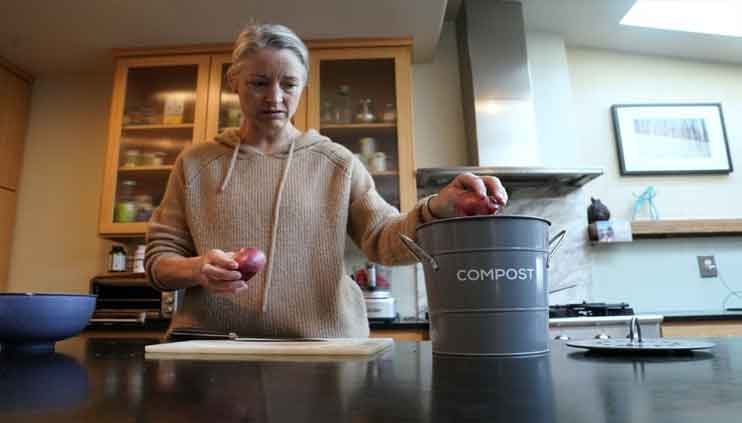Food waste becomes California's newest climate change target

Technology
Food waste becomes California's newest climate change target
DAVIS (AP) — Banana peels, chicken bones and leftover veggies won’t have a place in California trashcans under the nation’s largest mandatory residential food waste recycling program that’s set to take effect in January.
The effort is designed to keep landfills in the most populous U.S. state clear of food waste that damages the atmosphere as it decays. When food scraps and other organic materials break down they emit methane, a greenhouse gas more potent and damaging in the short-term than carbon emissions from fossil fuels.
To avoid those emissions, California plans to start converting residents’ food waste into compost or energy, becoming the second state in the U.S. to do so after Vermont launched a similar program last year.
Most people in California will be required to toss excess food into green waste bins rather than the trash. Municipalities will then turn the food waste into compost or use it to create biogas, an energy source that is similar to natural gas.
“This is the biggest change to trash since recycling started in the 1980s,” said Rachel Wagoner, director of the California Department of Resources Recycling and Recovery.

